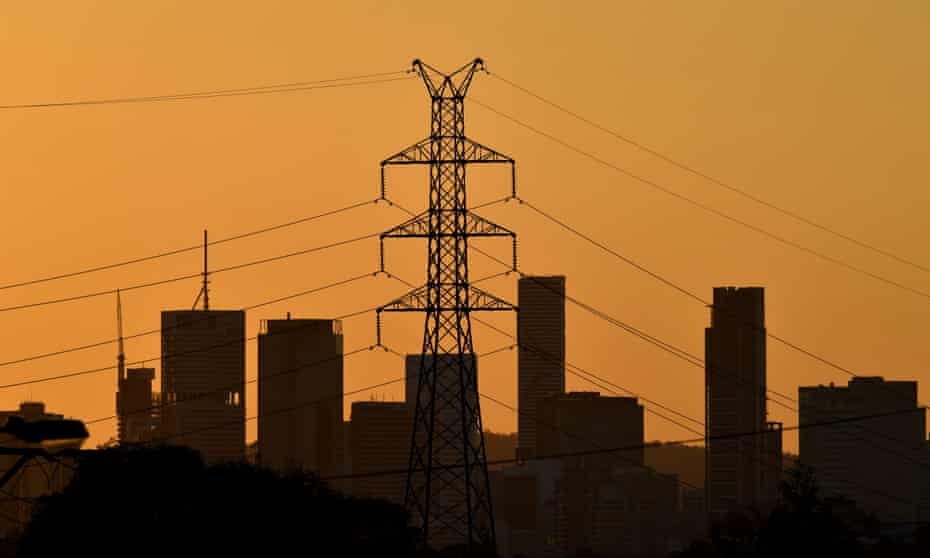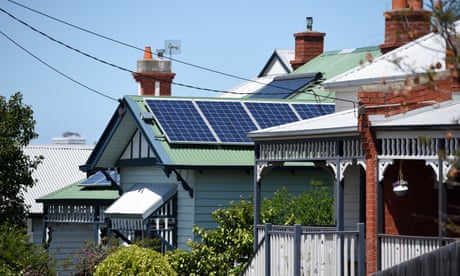Extract from The Guardian
Despite falling prices, average debt for gas and electricity rose 12%, from $897 in 2019–20 to $1,000 in 2020–21.

The data reveals 182,665 households are paying off energy bills, an increase of 8,444 over the year, a trend that also reflects the impact of the Covid pandemic.
Despite falling energy prices more households are struggling to pay their bills.
Both the Australian Energy Regulator and social services group Acoss are calling for an overhaul in how the debt is handled after a report from AER revealed there are 248,520 households across Australia struggling to pay.
According to the report released this week, the average household energy debt for gas and electricity has increased 12% from $897 in 2019–20 to $1,000 in 2020–21.
The average electricity debt for a customer upon entry into their retailer’s “hardship” program grew 21% over the same period, from $1,304 to $1,584.
The data reveals 182,665 households are currently paying off bills, an increase of 8,444 from the previous year, a trend that also reflects the impact of the Covid pandemic.

Despite growing debt, the number of customers entering “hardship” programs fell – from 72,882 to 65,855 in 2020–21, with around half of those customers still unable to keep up with their ongoing usage costs.
“It’s not surprising that energy debt rose due to the effects of the Covid pandemic, and not surprising to see an increase in people on payment plans to manage their bills,” Savage said.
“But we are not out of the Covid woods yet, and with our data showing more than 262,000 people now paying off some form of energy debt, it does raise questions as to why there is a drop in the number of customers entering hardship programs.
“Residential electricity customers on hardship programs have $500 more average debt, compared to other residential customers with debt,” she said.
Angela Finch is a single mum with three kids aged 13, 9 and 4. She has $12,000 worth of energy debt.
The debt has been accruing since she fled a violent relationship. She is on a payment plan of $55 a week, of which four dollars goes to the debt and the rest pays off the power the young family is still using.
“It’s going to be years, it’ll be a long time. I actually haven’t done the maths because I know it’ll be there forever,” Finch said.
“I do a tight budget. I had my girls’ birthdays, it’s six weeks to Christmas, and then in six weeks they go back to school. Do the math on that. It’s too depressing.”
Finch can tell you how much a kilo of minced meat costs or when the price of toilet paper went up – she rations food and plans three months in advance for Christmas and school restarting.
But she knows by the time she graduates from her social work degree and starts her new career, the family’s energy debt will hardly have a dent in it.
“It’s always in the back of your head, you don’t stop thinking about it. It’s niggling right there,” she said.
The program director of climate and energy at Acoss, Kellie Caught, said it was clear from the data that payment plans, which companies legally have to offer, weren’t helping Australians struggling.
“If you’re on jobseeker and living on $45 a day, your ability to pay down debt while you’re trying to pay the next energy bill is impossible,” Caught said.
“The data is clear, there’s been an increase of people who have been in debt for more than a year, and that level is increasing. They just can’t pay it off.”
Caught called on the federal government to offer those in serious debt $1,000 to help pay it off, which should be matched by the energy providers.
Savage said the regulator’s main priority in the next year was monitoring retailers to ensure they are identifying households in financial difficulty and offering them payment plans.
The federal energy minister, Angus Taylor, said the Morrison government was committed to ensuring retailers provided the necessary support.
“Energy costs are continuing to fall. This is good news for Australian families and small businesses,” Minister Taylor said.
“However, as providers of an essential service, it is critical that energy companies step up to deliver necessary support to any customers doing it tough.”
No comments:
Post a Comment